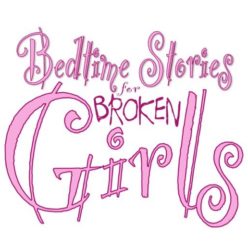hiii Mr. B
i’ve seen you mention twin peaks a lot so i decides to start watching it and i’ve finished the first episode. i really like it so far and i just wanted to tell you ☺️ and also say thank you because i probably wouldn’t have known about it without you <3
(submitted by: Anonymous)
There aren’t a lot of ‘80s shows —and despite premiering in April of 1990, Twin Peaks is the ultimate evolution of ‘80s television— that are evergreen. Miami Vice scaled those heights a few times, but at its best, MV was cinematic and slick and cool… in contrast, Twin Peaks was a creepy, kinky, consternating experience, every bit as cinematic, but filtered through a surrealist weirdo’s sensibilities.

I insist that Peaks be considered an ‘80s show because it didn’t change the ‘90s much. Yeah, we had Northern Exposure and The X-Files playing like distant echoes of what David Lynch and Mark Frost were doing in 1990, but for the most part, network television retreated to the comfortable mundanity of Friends and ER. It would be a long time before something as strange as Twin Peaks found its way to television again.

(Arguably, nothing really exceeded it until Twin Peaks: The Return in 2017.)

The first season is entertaining: it’s frequently funny, brutally sad, unsettlingly sexy, and infused with a “let’s see if the suits will let us get away with this” spirit. It was a soap opera with every dial turned up to 10, featuring high school prostitution, backwoods sex slavery, various and sundry murders, domestic violence, and international real estate malfeasance, all of it observed by an eye that found beauty and grace in tension and discomfort.

By season two, said suits were looking closely at the unexpected phenomenon they had on their hands, and began pushing Lynch/Frost to fix something that didn’t need fixing. To Lynch, “who killed Laura Palmer?” was a marketing gimmick, but to the network, it was a crucial question that demanded a complete and satisfying answer. (If there’s one thing Lynch avoids whenever possible, it’s providing complete satisfaction.) He was also working on future Palme d’Or winner Wild At Heart, so dealing with anyone’s bullshit was low on his list of priorities. Which resulted in an irritated Lynch providing an answer that answered very little…

…and then walking away from the show for the rest of the season. The back half of season two is a legendary train wreck that is only valuable in the way it illustrates how much impact a visionary has on base material, and what happens in that vision’s absence.

Lynch did return for the last episode, which instantly restablished the tone that made the show such a big deal in the first place. But it was a “too little, too late” thing, made worse by a WTF ending that chased away the last of Twin Peaks’ casual fans.

But as prophesied within the show’s narrative, we saw them all again, twenty-five years later, in Showtime’s Twin Peaks: The Return. Which I suspect will comfortably stand as the greatest artistic achievement on television for some time to come… it provides eighteen hours of curated dreams and nightmares, massaged by the practiced hand of Mark Frost into something that is somehow completely unexpected and frustrating and mystical and rewarding.

With all of that said, compared to Golden Age of Television stalwarts like The Wire, Breaking Bad, or even Deadwood, Twin Peaks is relentlessly inaccessible. It expects you to buy in and play along, with almost no effort put into on-boarding after the pilot… it’s more of an experience than a narrative. And given the prominence of sound design and Angelo Badalementi’s soundtrack, it isn’t friendly to modern viewing habits like muting the audio and following the subtitles. As wonderful as it is, Twin Peaks is not an easy watch.
But you owe it to yourself to try. It gives back as much as you put into it.
Oh, and Anon? You’re welcome.

